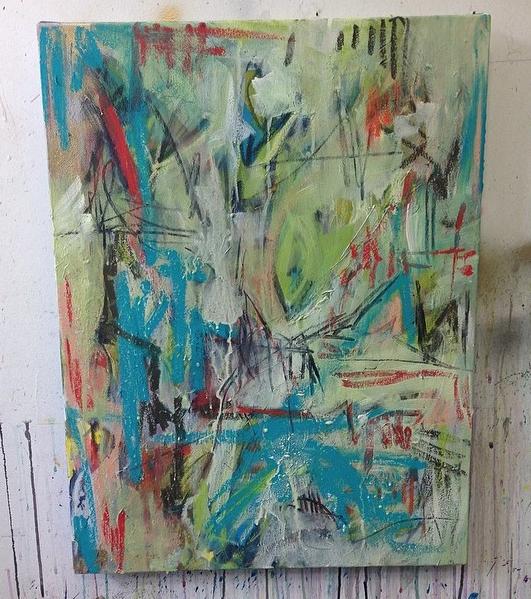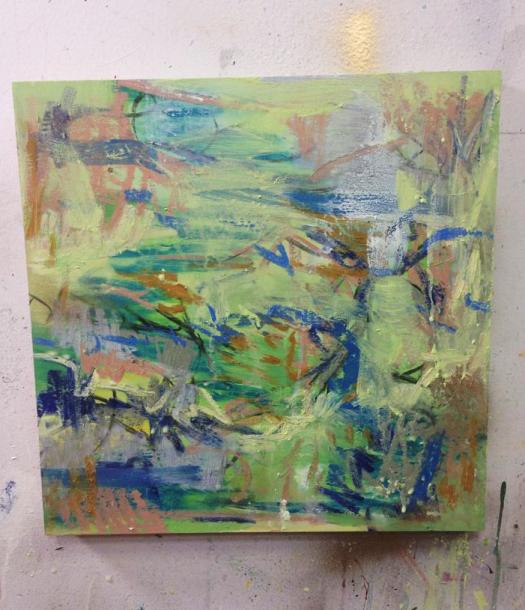

Loss can take many forms. Some loss is more devastating than others. When our spouse tells us that he or she wants a divorce, when a close friend or family member dies, when we get laid off from a job or when we become disabled by illness or injury—our lives can be sent into a tailspin. Loss forces us to face several psychological challenges, but by incorporating the arts into our lives, these new challenges can be used as a tool for gaining momentum in the healing process.
1. Overcoming emotional pain that paralyzes: At first we need to face the emotional pain that has the ability to paralyze us. The emotional pain that we face has the ability to trap us in a hazy, scary reality that we are unable to escape. When faced with this pain, we can lose the ability to think straight or function in the most basic ways. One thing that can help diminish pain is time. Our challenge during this time is to find ways to get through the terrible hours, days, and weeks. Taking time to create something with our hands helps to fill the new gaps that we find ourselves facing and gives us time to work our way out of the fog.
A helpful exercise is to go to a quiet space, and with paint and newsprint paper, let your emotion attack the surface creating a reflection of what is going on inside of you. It is important not to spend a lot of time on a single painting, but to create as many as you can in a fixed amount of time. As the fog begins to lift and the “new normal” sets in, we are able to face our second challenge:
2. Adjusting to the changes in our daily lives: Grief and loss changes almost every aspect of our daily lives. We might no longer have a spouse with whom to share our life, losing our job means that we have nowhere to go each morning, and becoming disabled might mean that we have to retrain ourselves to do the tasks that we are used to doing without even thinking. To recover we come face to face with the challenge of coming to terms with that challenges that were forced upon us. It’s only then that we can begin the process of discovering new ways of living and being that can substitute for those we’ve lost.
Setting aside time to regularly process our feelings through working with our hands and creating something new, helps us to discover who we are in our new situation which helps us to begin to 3. Reformulate our identity:
Significant grief and loss can impact our very sense of identity—how we define who we are. We might feel as if the person we once were is lost and that the person staring back at us in the mirror is a total stranger. We might have defined ourselves by our career but lost our job, we might have defined ourselves by our couplehood but our spouse left us (or we left our spouse), or we may have defined ourselves by our physicality but have become crippled by a newly diagnosed disease or disorder. To recover we face the challenge of reexamining and redefining who we are, how we see ourselves, and how we want others to see us.
Painting and drawing our emotion and feelings is great for this discovery process. It might be helpful to create a series of self-portraits. The first self-portrait should be who you were before the loss occurred in your life, the second who you feel you are now (expressing your current emotions), and the third should represent who you want to become or where you want to go. We have to recreate our identities and come to find peace with our new selves and our new lives, so that we can grow.
4. As we are reconstructing our identity to match our new circumstances, we must at the same time be adjusting our belief systems. As human beings we naturally try to make sense of our experiences in life. Some of us articulate it more clearly than others do, but we each have our own way of understanding how the world works, a unique set of beliefs and assumptions that form the lens through which we view the world and our individual place in it. Loss and grief can challenge these basic assumptions and make us question everything that we thought we knew. We are flooded with doubts and questions; often the simplest question is simply—why? It is our challenge to find ways of making sense of what happened and adjusting our belief systems accordingly.
To grow, we have to find within ourselves a way to ascribe meaning to the events and discover a new purpose to steer us into our new existence. A helpful exercise for redefining our belief systems is to take a piece of paper and write down everything that we thought that we knew, and all the beliefs that we held on to. Once you have scribed all of these beliefs and assumptions onto the paper, paint over them. Once the paint dries, inscribe your new beliefs and your new perspectives over top of the old ones.
Recovering from grief and loss takes time but the best way to treat our psychological injuries is to take on these challenges at our own pace, confronting and overcoming them one by one.
TJ Walsh is a painter and graduate student in Clinical Counseling at Eastern University in Saint Davids, PA.